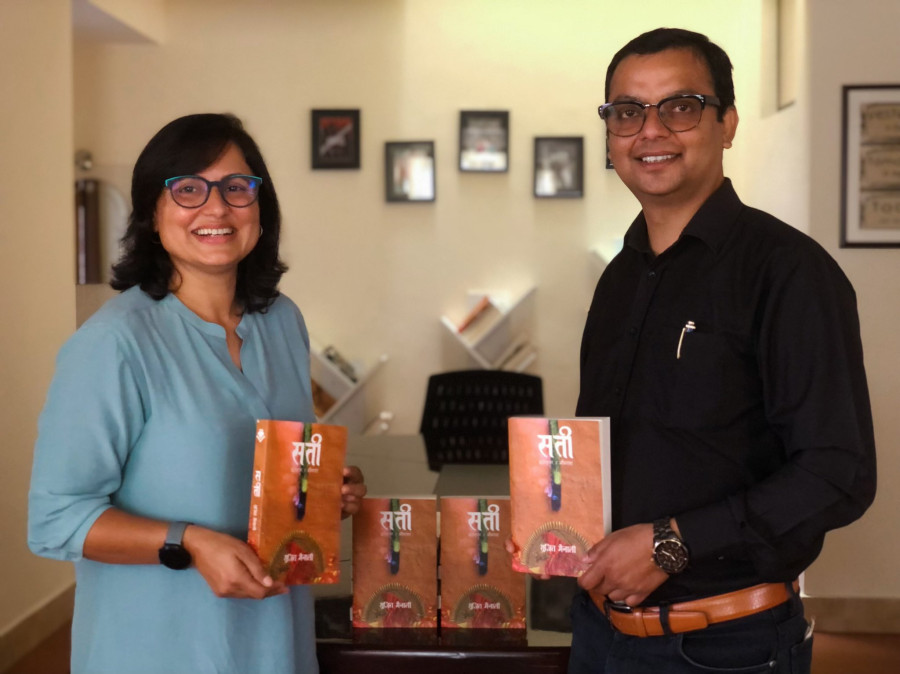Books
Sujit Mainali’s ‘Sati: Itihas Ra Mimamsa’ made public
The book sheds light on how gender discrimination in different forms prevalent in the society are vestiges of the social scourge that was abolished over 100 years ago.
Post Report
Author Sujit Mainali’s new book “Sati: Itihas Ra Mimamsa” has been made public here in Kathmandu. The book attempts to shed light on the “sati” custom, a subject on which not much literature is available.
The book is published by Kitab Publishers.
The book delves into the historic, psychological and social aspects of the “sati” tradition which was abolished in Nepal in July 1920. The “sati” practice, a social scourge, meant a wife burning herself alive on the funeral pyres of the husband.
Even though the custom was abolished over a hundred years ago, the book tries to shed light on how its impact in the form of gender discrimination is still prevalent in the society.
“The book takes a deep dive into how the patriarchal society extracted benefits from the the custom in which a wife was burned alive after the death of the husband and offers accounts of other misogynist behaviours like discrimination against women during their menstruation and rape,” said Mainali.
According to the publisher, the book has eight chapters. The author wrote the book after researching the “sati” custom that was prevalent in Nepal and India, according to the publisher.
“While reading books on sociology, I realised that only if we understand history and the gender aspects attached to it can we comprehend our society well,” said Maianli.
“Sati: Itihas Ra Mimamsa” (Sati: History and critical investigation) is author Mainali’s second book, after “Shilaynyas:” Nepal Nirman Ko Naalibeli”, which was published two years ago.
Publisher Kalpana Dhakal said that this book explains in detail the historical aspects of the “sati” custom.
“After reading the book, it becomes apparent how gender discrimination in different forms prevalent in society are the vestiges of the scourge called ‘sati’ custom,” said Dhakal.




 23.51°C Kathmandu
23.51°C Kathmandu









